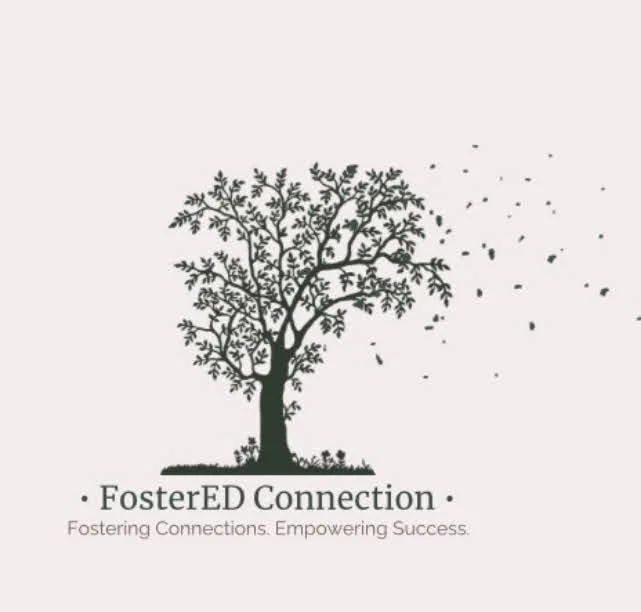FosterED Connection was born from a simple but urgent question: What if foster care didn't have to feel like disconnection? What if every child, parent, and caregiver involved in the foster care system could find themselves supported—not just by scattered services, but by a coordinated, compassionate community committed to long-term healing and success?
This vision drives everything we do at FosterED Connection. We are a Washoe County–based organization working to transform how families and children experience the foster care system in northern Nevada. Through education, advocacy, and community-building, we aim to reduce trauma, build bridges between systems, and empower the people most impacted by foster care.
Why FosterED Connection Exists
The foster care system was designed as a safety net—but for too many families, it feels more like a trap. In Washoe County alone, hundreds of children are placed in out-of-home care each year, and countless families struggle to reunify due to structural barriers rather than neglect or abuse. These stories are not outliers. They are the norm in a system that’s deeply under-resourced and often disconnected from the communities it serves.
At FosterED Connection, we believe the system needs reform from the inside out—starting with better information, more trauma-informed practices, and stronger partnerships across service providers, families, and community members.
The Problem: Fragmentation and Mistrust
The child welfare system is complex. Parents involved in CPS investigations often interact with multiple agencies: Child Protective Services, the court system, school districts, health providers, and behavioral health programs. Each agency has its own language, processes, and pressures. Too often, families are left navigating this maze alone.
Many foster families, too, feel overwhelmed by lack of guidance, inconsistent communication, and unclear expectations. Even professionals—teachers, social workers, therapists—report frustration at the siloed nature of the work. And for children? The experience can be confusing, disorienting, and traumatic.
This fragmentation creates an environment where trust is scarce, and support is inconsistent. It also leads to poor outcomes: broken family ties, misdiagnosed mental health conditions, and children bouncing between homes without a long-term plan.
Our Mission and Approach
FosterED Connection exists to break down these silos. We operate from the belief that healing happens in community and that no single entity can meet all the needs of families in crisis. Our mission is to:
Educate families and professionals about how the system works, what rights and options they have, and how to advocate effectively.
Create trauma-informed support tools that help families manage stress, access resources, and build resilience.
Connect community partners across agencies and sectors to promote communication, collaboration, and creative problem-solving.
Advocate for systemic change through policy education, research, and the elevation of lived experience.
What Makes Us Different
FosterED Connection is not a service provider—we’re a systems-level support. Think of us as the connective tissue. We don’t replace case workers, therapists, or attorneys. Instead, we help each piece of the puzzle work together better.
Our work is rooted in:
Lived experience. Many of our team members and partners have personal histories with foster care—as youth, birth parents, caregivers, or professionals. That insight shapes every program we develop.
Local expertise. We’re based in and committed to northern Nevada. We know the challenges unique to our communities, and we build programs with Washoe County’s infrastructure in mind.
Long-term commitment. We are in this for the systemic changes that take years. We track patterns, raise awareness, and work to embed new practices in existing systems.
What We Offer
Over the coming year, this blog will explore dozens of issues that affect the foster care community in Washoe County. We’ll dive deep into:
How CPS investigations unfold
What happens in family court
The impact of trauma on child behavior
Why so many families never reunify
How race, poverty, and policy intersect
What truly trauma-informed care looks like
We’ll also share tools and tips: how to navigate school supports, how to write letters for court, how to build a support network, and how to stay hopeful in the face of uncertainty.
We aim to serve:
Parents navigating CPS, reunification, or post-reunification recovery
Foster and kinship caregivers seeking to understand trauma and connect with resources
Professionals across education, healthcare, social work, and mental health
Community members and advocates ready to get involved in prevention, support, or policy change
Where We're Going
This blog is just one piece of our broader movement. In the coming year, FosterED Connection will:
Launch trauma-informed workshops for foster and kin caregivers
Facilitate community education events on the foster care process
Partner with local behavioral health clinics and hospitals
Collaborate with the school district to improve educational access
Advocate at the county and state level for reforms that support family preservation
We know these goals are ambitious. But we also know that change starts with connection—and connection starts with understanding.
A Final Word
Foster care doesn’t have to be a place of isolation and pain. With the right tools, support, and people in place, it can become a bridge to healing, growth, and transformation. That’s what we’re building at FosterED Connection.
Thank you for being here. Whether you’re a caregiver, a case worker, a former foster youth, or just someone who cares—there’s a place for you in this work.
Follow along each week as we unpack the issues, share real stories, and illuminate the path forward.
Welcome to the movement.
